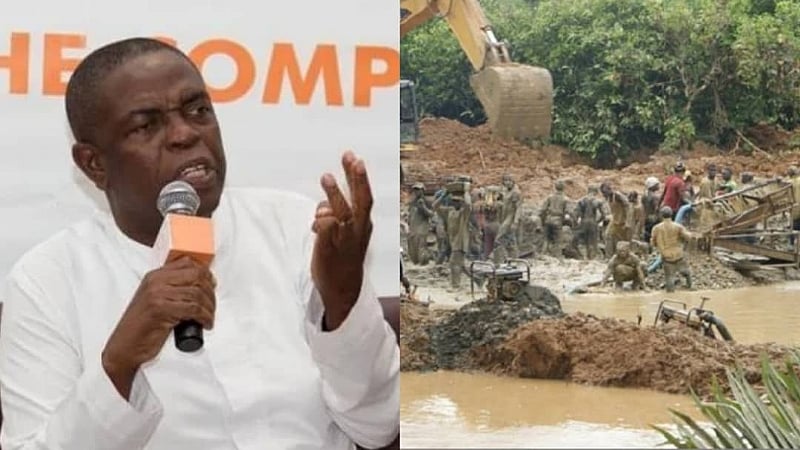The tragic death of eight illegal miners at AngloGold Ashanti’s Obuasi mine has reignited the debate surrounding the complex and often perilous landscape of mining in Ghana. Veteran journalist Kwesi Pratt Jnr. characterized the situation as a “major problem,” highlighting the multifaceted nature of the challenges facing the industry. The incident, which involved an alleged attempt by a group of illegal miners to access and loot gold from the mine, underscores the desperation that drives individuals to engage in such dangerous activities. The confrontation with military personnel guarding the mine shaft resulted in a deadly exchange of fire, leaving eight dead and others injured. This unfortunate event serves as a stark reminder of the risks associated with illegal mining and the urgent need for comprehensive solutions to address the root causes of this pervasive issue.
Pratt’s commentary delves deeper than simply condemning illegal mining, also known as “galamsey,” acknowledging its significant role in the broader mining crisis while emphasizing the existence of other “disturbing” aspects within the industry. He specifically questioned the lack of equitable development in Obuasi, the site of AngloGold’s operations, highlighting the disparity between the wealth extracted from the land and the tangible benefits received by the local community. This disconnect between resource extraction and community development fuels social unrest and resentment, creating a breeding ground for illegal activities and further exacerbating the challenges faced by the mining sector. Pratt’s “Where is justice in Obuasi?” underscores this critical point.
The veteran journalist’s concern extends beyond Obuasi, encompassing all mining communities across Ghana. He advocates for a fundamental shift in the relationship between mining companies and the communities they operate within, arguing that resource extraction should be accompanied by tangible improvements in the lives of local residents. This principle of shared prosperity is essential not only for ethical reasons but also for the long-term stability and sustainability of the mining industry. When communities experience direct benefits from mining activities, they become stakeholders in the success of these operations, fostering a sense of ownership and reducing the incentive for illegal and often destructive practices.
Pratt’s appeal to President John Mahama to prioritize the mining sector and eradicate galamsey reflects the urgency of the situation. He draws a parallel between the previous government’s failure to address this issue and the potential consequences for the current administration, suggesting that inaction could lead to similar electoral repercussions. This warning underscores the political significance of the mining crisis and the importance of decisive leadership in tackling its multifaceted dimensions. The challenge lies not only in curtailing illegal activities but also in establishing a framework that ensures responsible mining practices, equitable distribution of benefits, and sustainable development for the communities affected by these operations.
The call for action goes beyond government intervention; it extends to the mining companies themselves. They have a responsibility to operate ethically and transparently, ensuring that their activities contribute to the well-being of the communities they operate in. This includes providing fair compensation for land and resources, investing in local infrastructure and development projects, and prioritizing environmental protection. By embracing sustainable and community-focused practices, mining companies can help build trust and foster a more positive relationship with local populations, reducing the likelihood of conflict and illegal activities.
Ultimately, the complex challenges facing Ghana’s mining sector require a collaborative approach involving the government, mining companies, and local communities. Open dialogue, transparent policies, and a commitment to shared prosperity are essential for creating a sustainable and equitable mining industry. The tragedy at Obuasi serves as a tragic wake-up call, highlighting the urgent need for comprehensive reforms and a renewed focus on responsible mining practices that benefit both the nation and its people. Ignoring this call for change will only perpetuate the cycle of poverty, conflict, and environmental degradation that currently plagues the sector.


